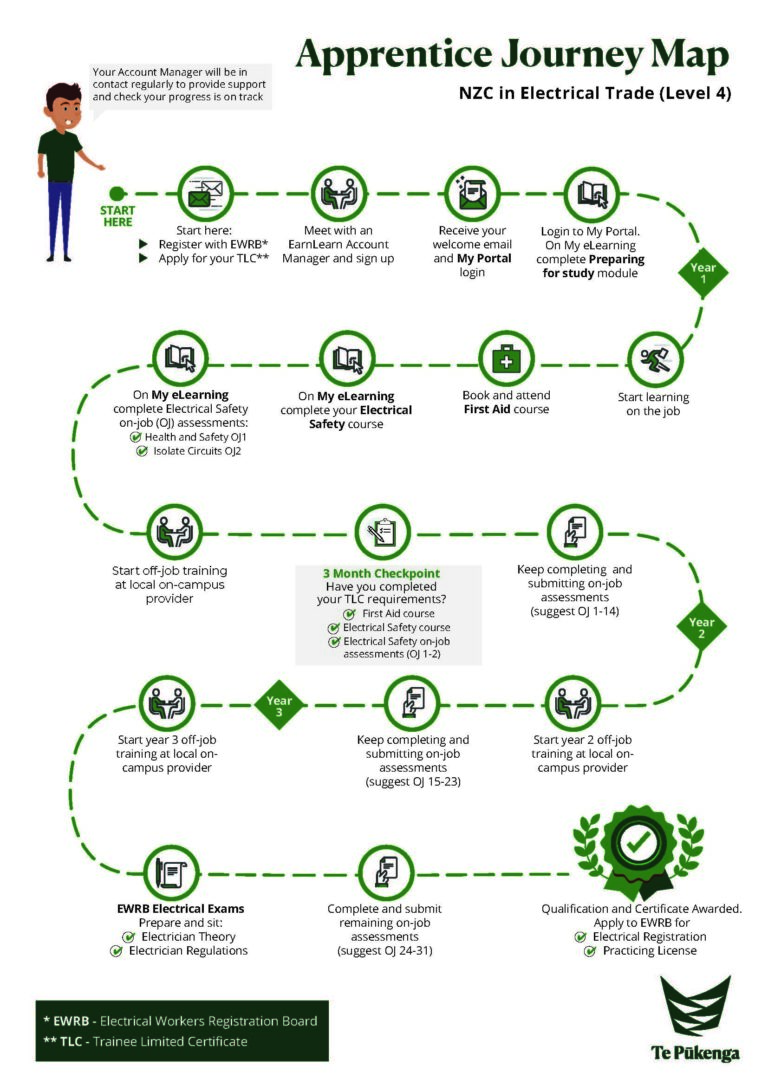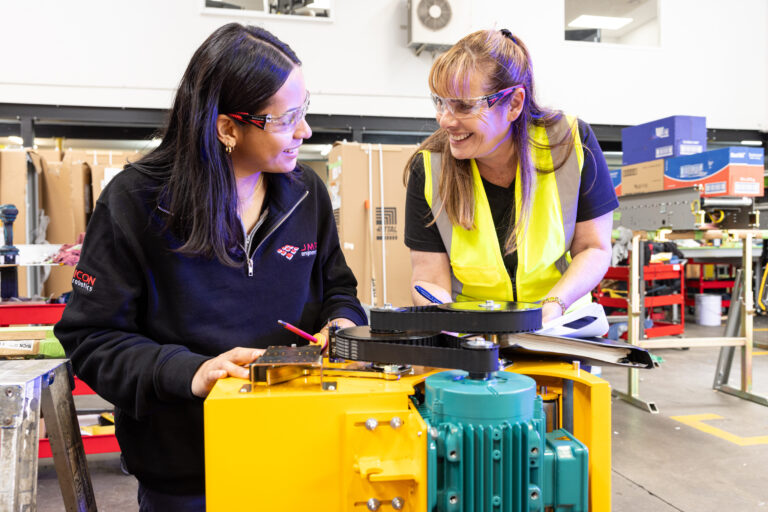Interested in becoming an electrician?
To become an electrical apprentice, learners must be at least 16 years old and should have at least a restricted driver’s licence. Learners must also have achieved National Certificate NCEA level 2 Maths and English or have equivalent skills and knowledge.
Step 1 – Learners need to find an electrical employer who is willing to take them on and support them through the apprenticeship.
Step 2 – Contact EarnLearn to arrange enrolment.
Step 3 – Start learning and continue to earn.
For more information about the new programme or to enrol, fill in this contact form, or give us a call on 0800 327 648 (0800 EARN IT) or send us an email at support@earnlearn.ac.nz.










